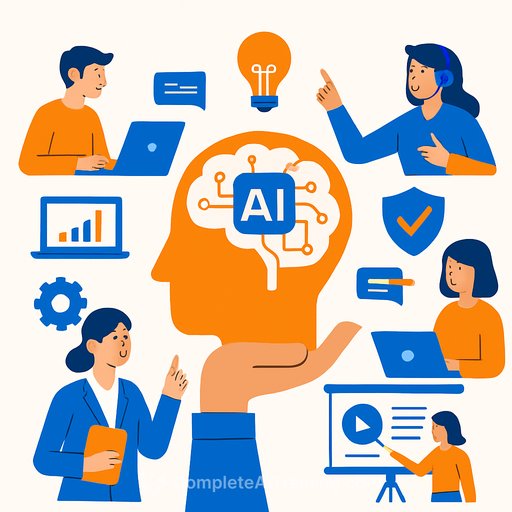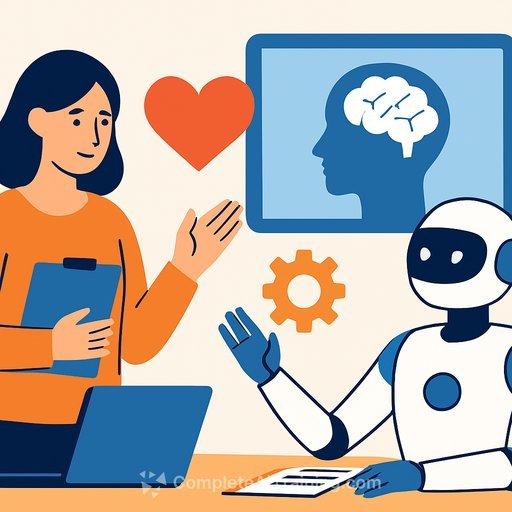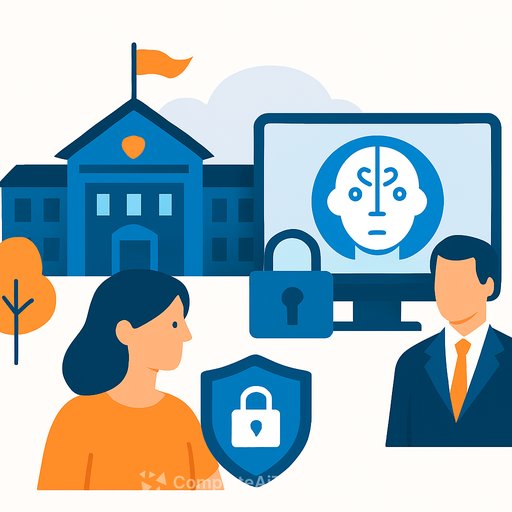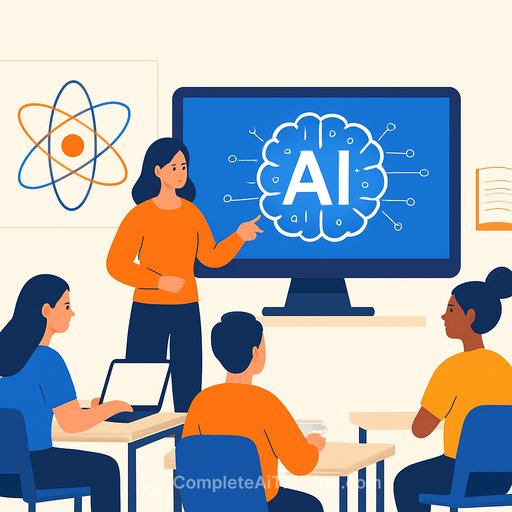AI in Practice: Insights from Microsoft on Copilot, AI Skills, and Learning Organizations
Artificial intelligence is becoming essential in workplaces across industries, and education professionals are no exception. Recently, experts from Microsoft Germany shared practical perspectives on integrating AI tools like Copilot into daily workflows, what distinguishes Copilot from ChatGPT, and how organizations can build the AI skills necessary to thrive.
What Does AI Competence Mean?
Daniela Todorova, Director Learning at Microsoft Germany, emphasizes that AI competence goes beyond technical knowledge. It involves understanding AI basics, data ethics, and developing critical thinking alongside responsibility. Humans remain the decision-makers—AI acts as a co-pilot, handling routine tasks while freeing people to focus on creativity and strategy.
To work effectively with AI, employees need what Todorova calls “dual team capabilities”: the ability to collaborate both with fellow humans and AI agents. Staying curious and willing to experiment is key to developing this skill.
How Does Teamwork with AI Look in Practice?
AI systems like Copilot are designed to support rather than replace human roles. Think of it like flying a plane: the pilot is in control, but the autopilot handles repetitive or standardized tasks to reduce workload. When situations become complex, humans step in.
Reliability depends on clear task definitions, governance, monitoring, and responsible use. Training AI agents properly ensures they perform consistently, making them trustworthy collaborators rather than unpredictable assistants.
Preparing Your Workforce for AI Tools
To successfully introduce AI tools such as chatbots, companies should foster a culture where leaders model curiosity and cross-team collaboration. Forming internal AI learning groups encourages experimentation and peer learning, helping employees grasp responsible AI principles like fairness, transparency, and security.
This approach not only helps meet legal requirements such as those in the EU AI Act but also builds trust in AI technologies and drives innovation.
Key Considerations for Using Microsoft Copilot
Microsoft aligns its AI solutions with EU regulations, actively working with authorities to clarify compliance challenges. Internally, they promote continuous learning through events and role-specific challenges.
Companies must understand their AI footprint by regularly assessing the risks of AI tools they deploy. Having a governance framework that meets legal standards ensures responsible development and use. Staying engaged with policy developments and industry groups helps organizations stay compliant as regulations evolve.
Learning with AI in the Workplace
Lara Bems, Skilling Program Manager at Microsoft Germany, highlights AI’s potential to transform learning. AI-powered tools can create personalized learning paths, generate content, and provide feedback. For example, she used Copilot as a quiz master to prepare for certification successfully.
Microsoft’s new “People Skills” service, integrated with Microsoft 365 Copilot and Microsoft Viva, helps companies track employee skills and match them with appropriate AI tools, supporting targeted skill development.
Cultural and Structural Shifts Needed for AI Adoption
AI adoption impacts an entire organization, not just IT. Leaders must foster a culture open to change and experimentation, encouraging collaboration across departments.
Prioritizing continuous learning is essential. According to Charles Jennings’ formula, an organization must learn faster than the rate of external change to stay competitive. Some companies may find it valuable to create roles like Chief AI Transformation Officer or a dedicated transformation office to manage communication and rollout of AI initiatives.
Copilot vs. ChatGPT: What Sets Them Apart?
Both tools use similar underlying GPT models and serve as creative partners for brainstorming and drafting. However, Microsoft 365 Copilot is integrated directly into Microsoft Office apps like Outlook, Word, Teams, Excel, and PowerPoint. This integration gives Copilot access to users’ work context—emails, meetings, documents—enabling it to assist more efficiently with tasks such as summarizing meetings or suggesting strategies.
Data privacy is another critical difference. Copilot processes data within the company’s secure Microsoft 365 environment and complies with strict data protection rules like GDPR. Unlike external tools, it doesn’t use user data to train models outside the organization, ensuring compliance with corporate privacy policies.
Real-World Uses of AI Tools
Daniela Todorova regularly uses Copilot to refine communications, gain market insights, and support client preparation. She also applies AI at home, for example, to help her son study history. Her team deploys AI agents for tasks like automating partner follow-ups and managing training schedules, demonstrating AI’s versatility across different processes.
Lara Bems uses Copilot to summarize meetings, prioritize work, and generate ideas for training programs. She has created AI agents to quickly find client resources and act as a personal writing coach. Beyond work, she leverages AI tools for everyday needs, such as planning vacations or creating invitations.
Building Your AI Skills
For educators and organizations looking to develop AI competencies, focusing on responsible use, continuous learning, and practical experimentation is essential. Exploring resources and courses can help build foundational knowledge and hands-on skills. For those interested, Complete AI Training offers a range of courses that cover AI basics, ethical use, and tools like Copilot.
Embracing these principles will help education professionals and organizations confidently integrate AI into their workflows while maintaining human oversight and responsibility.
Your membership also unlocks:





